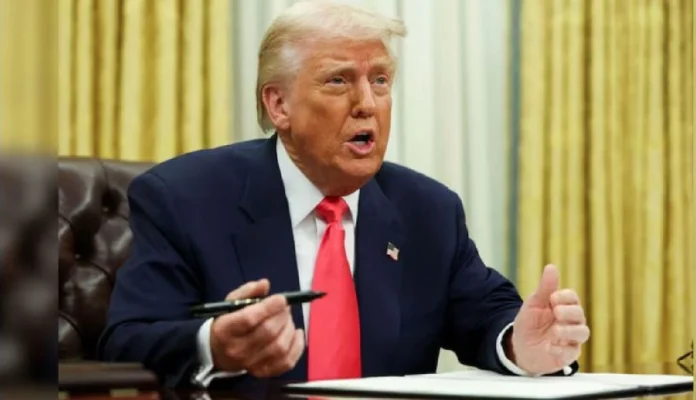By Kenneth Tiven
The US State Department has quietly instructed embassies and consulates to adopt stricter social media vetting for student visa applicants. Under this directive, officials must comb through online accounts for signs of “hostility towards the United States”—a subjective filter that many see as a crackdown on free expression.
This policy currently targets applicants for F (academic), M (vocational), and J (cultural exchange) visas. But if normalized, it could soon extend to Indian H1B seekers or even tourists. In a democracy built on free thought, this development marks a chilling turn: the State now decides who thinks the “right” way.
THE CRACKDOWN ON THE LEGAL SYSTEM
The Trump administration’s assault on dissent is not limited to students or migrants. It’s now targeting the legal profession itself. The Justice Department has coerced major law firms into providing pro bono work—or risk exclusion from federal court work. Those that refuse have faced litigation and intimidation.
In response, the American Bar Association (ABA)—an institution that typically avoids political confrontations—has filed a sweeping lawsuit. The complaint warns of a “deliberate policy designed to intimidate and coerce law firms and lawyers” who challenge Trump’s policies. According to ABA, fear now grips the legal community, with attorneys avoiding cases that pit them against the federal government for fear of retaliation.
WEAPONIZING THE EXECUTIVE BRANCH
Lawyer Chris Geidner put it starkly: “Using the powers of the Executive Branch to target private citizens and firms is unprecedented.” This targeted repression undermines the judiciary’s ability to act as a constitutional check. In May alone, federal courts ruled against the administration in 96 percent of cases—but Trump’s team knows that fear of future reprisals may silence many from even trying.
US District Judge Richard Leon, in a landmark 73-page ruling, warned: “The cornerstone of the American system of justice is an independent judiciary and an independent bar willing to tackle unpopular cases.” That cornerstone, it seems, is under siege.
IMMIGRATION BY WHIM
While public attention drifted towards Trump’s military parade and a “No Kings” protest, the administration quietly flipped its immigration stance. Under pressure from powerful agricultural and hospitality lobbies, Trump paused workplace raids in key sectors. Days later, in classic Trump fashion, he reversed course—reportedly at the urging of hardliner Stephen Miller, who demanded 3,000 daily arrests.
This policy chaos reflects a deeper truth: there is no strategic vision, only erratic swings dictated by optics, outrage, or whispered advice from loyal ideologues. ICE raids returned, disrupting families and terrifying immigrant communities—legal and undocumented alike.
THE FOUNDERS’ WARNING
The US was founded in rebellion against a capricious king. Its Constitution spread power across branches of government to prevent tyranny. Yet, Trump’s actions—consolidating executive power, intimidating courts and lawyers, and dictating who may speak or stay—show how fragile that balance can be.
Chief Justice John Roberts, while speaking in Buffalo recently to mark the 125th anniversary of the US District Court for the Western District of New York, reminded Americans that courts are meant to “check the excesses” of Congress and the president. But as courts grow wary and legal defenders retreat, the check risks becoming symbolic, rather than real.
The America many come to for opportunity and justice may still exist—but the gatekeepers are changing, and so are the rules.
—The writer has worked in senior positions at The Washington Post, NBC, ABC and CNN and also consults for several Indian channels


